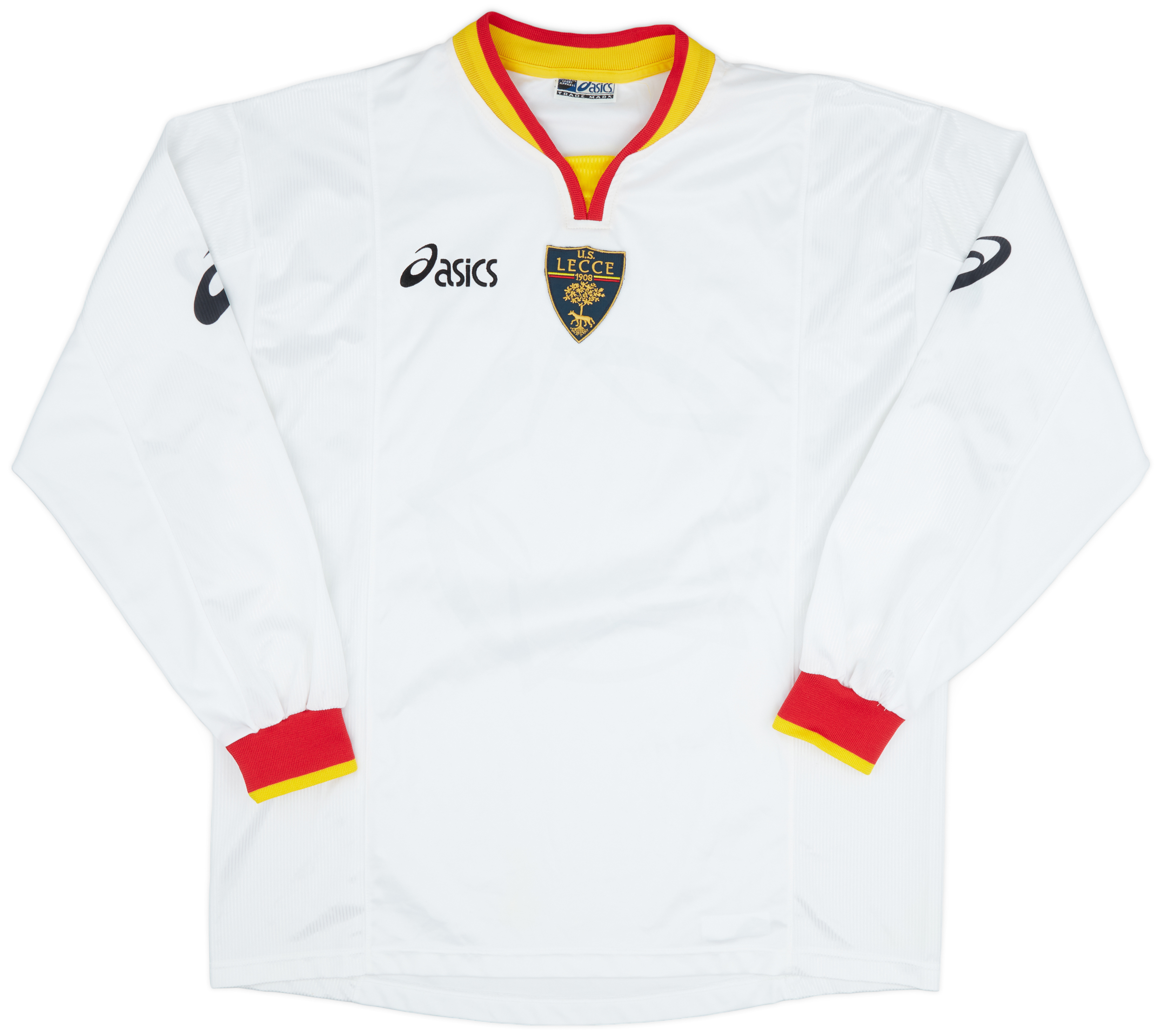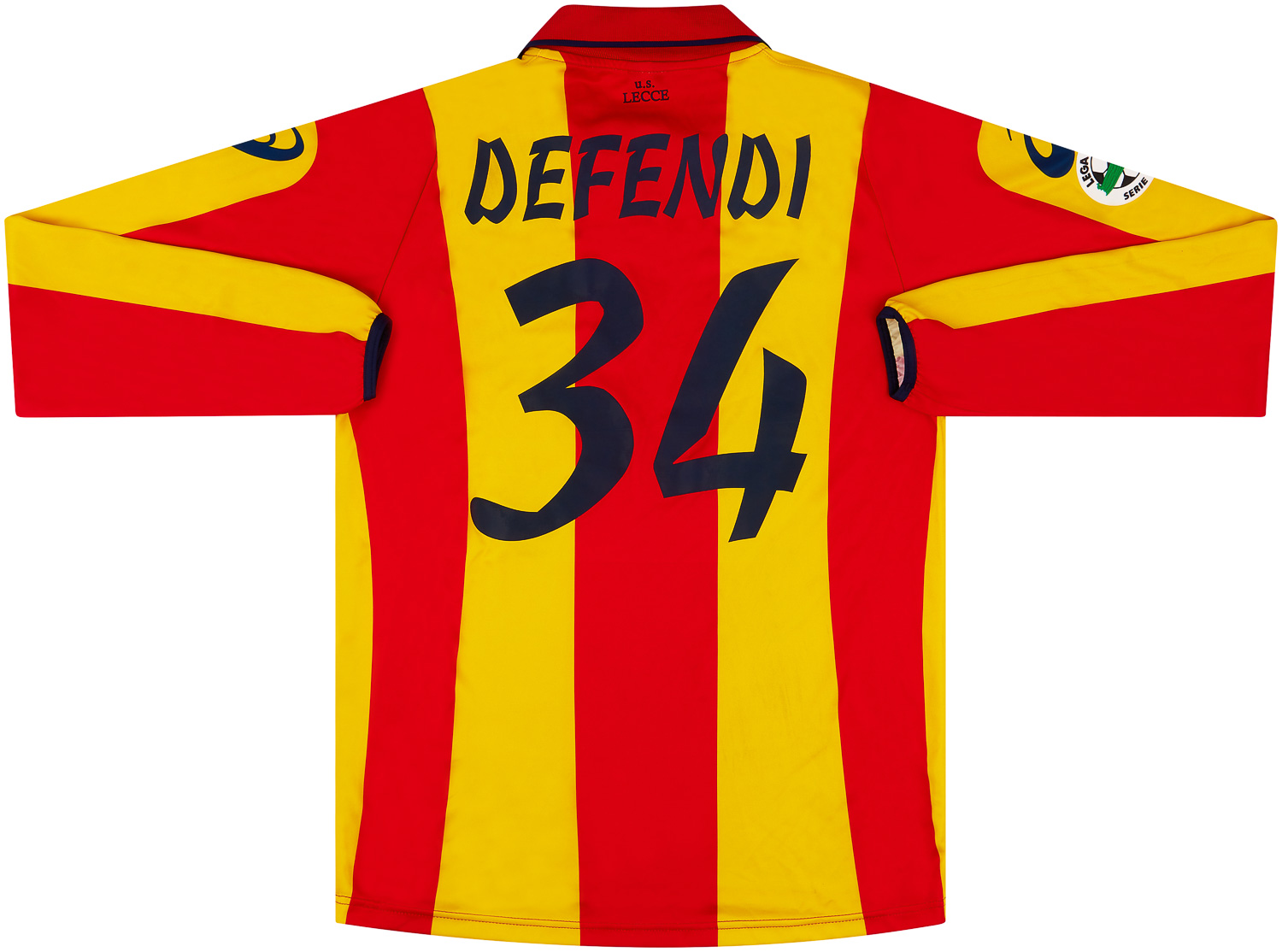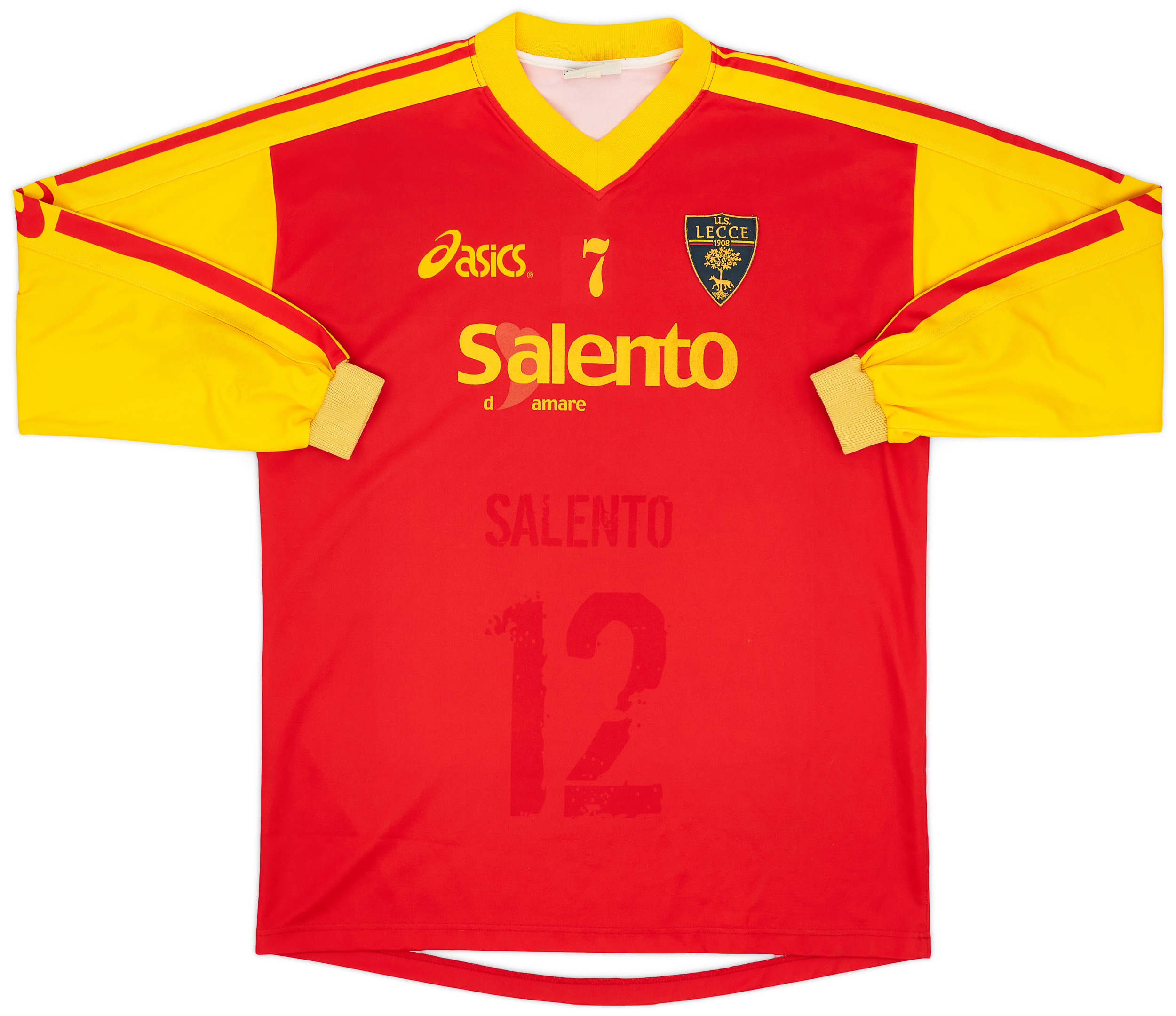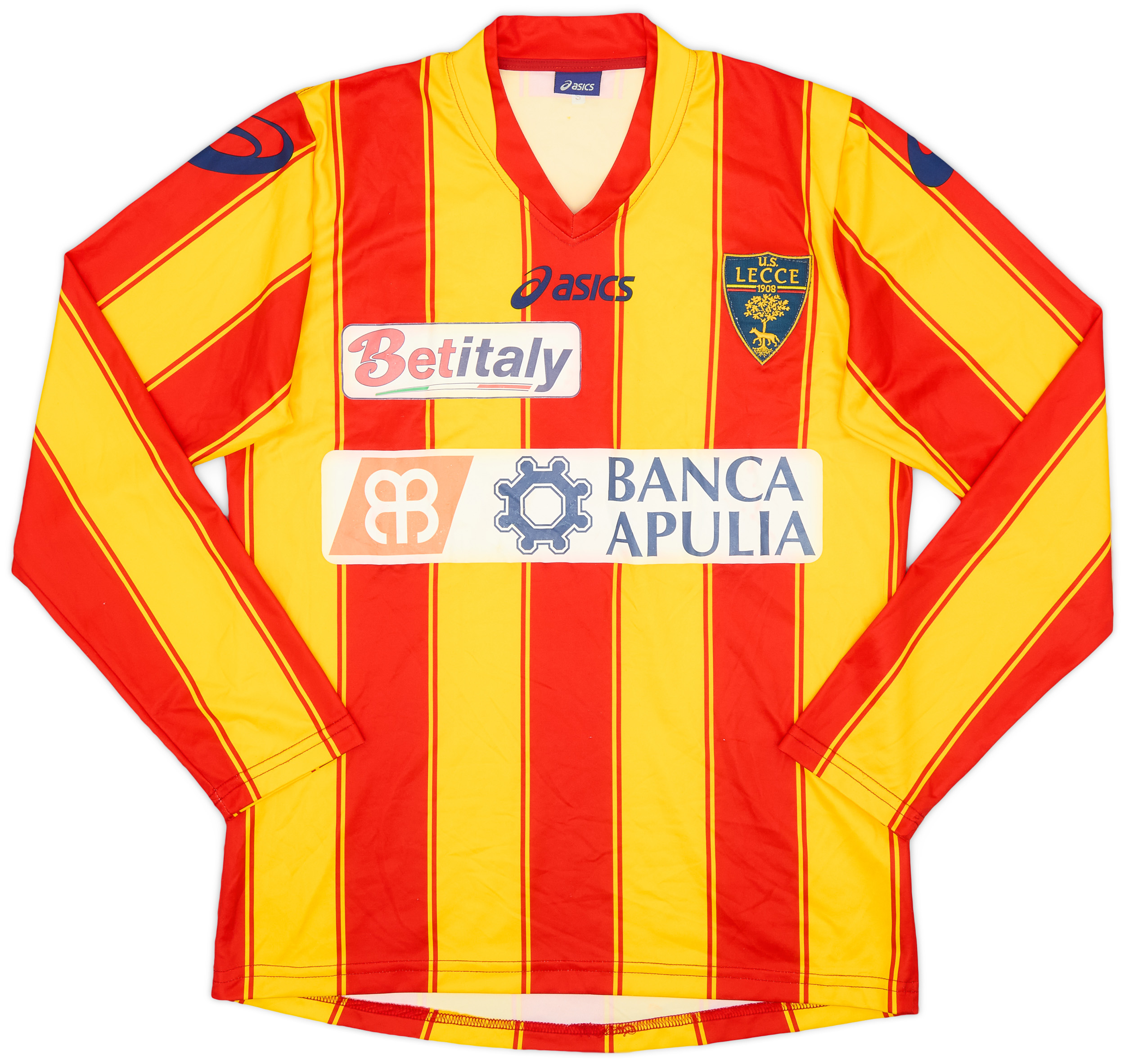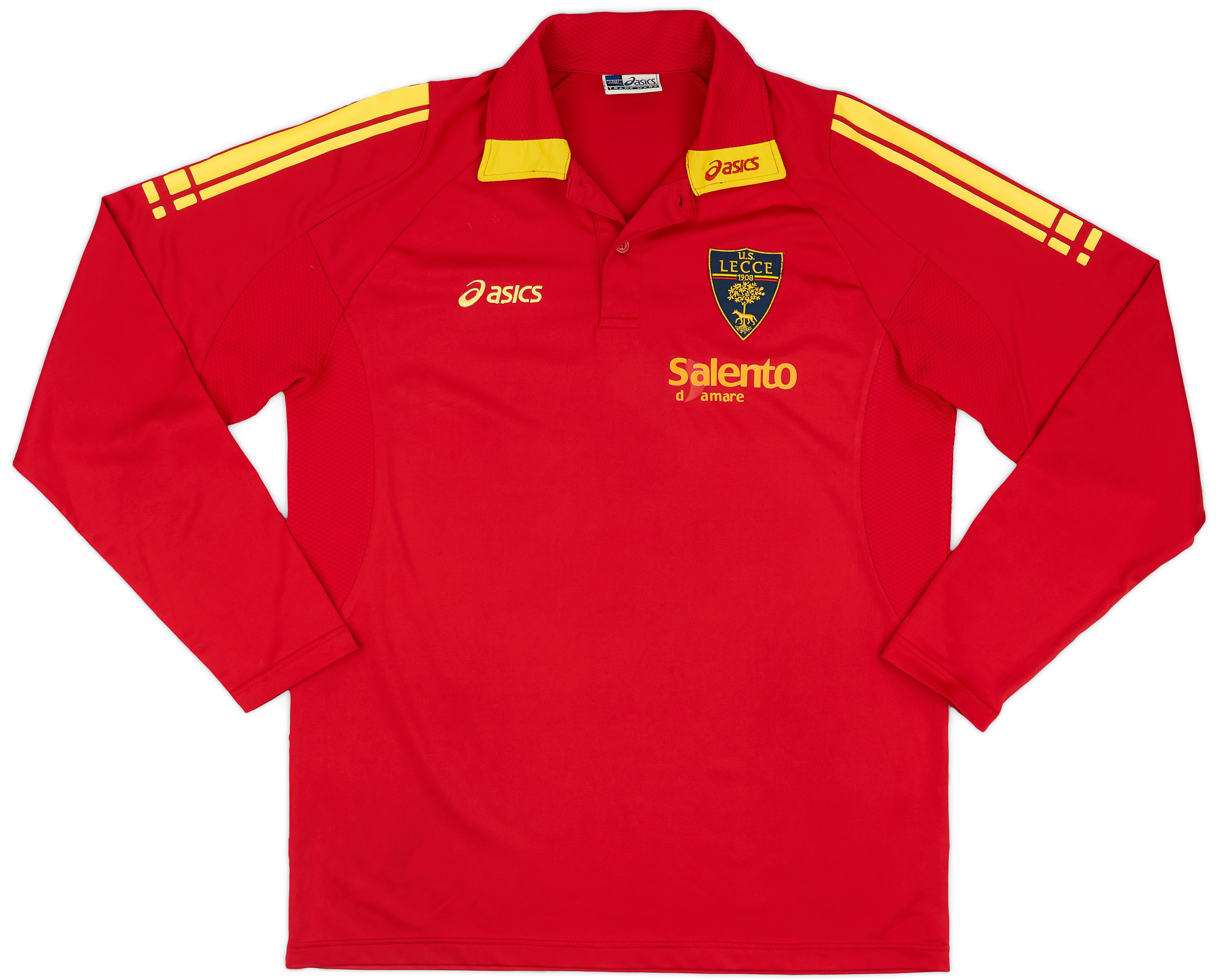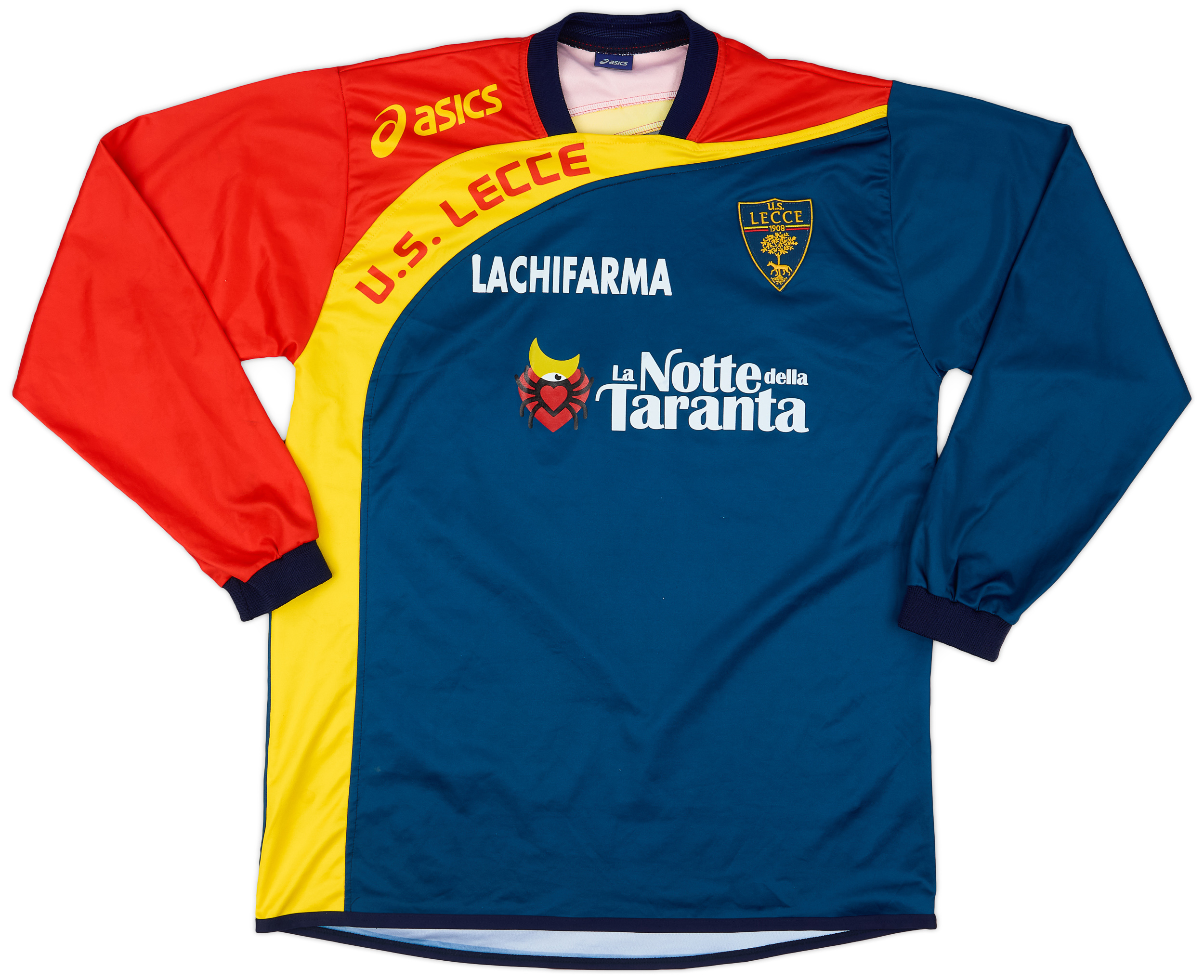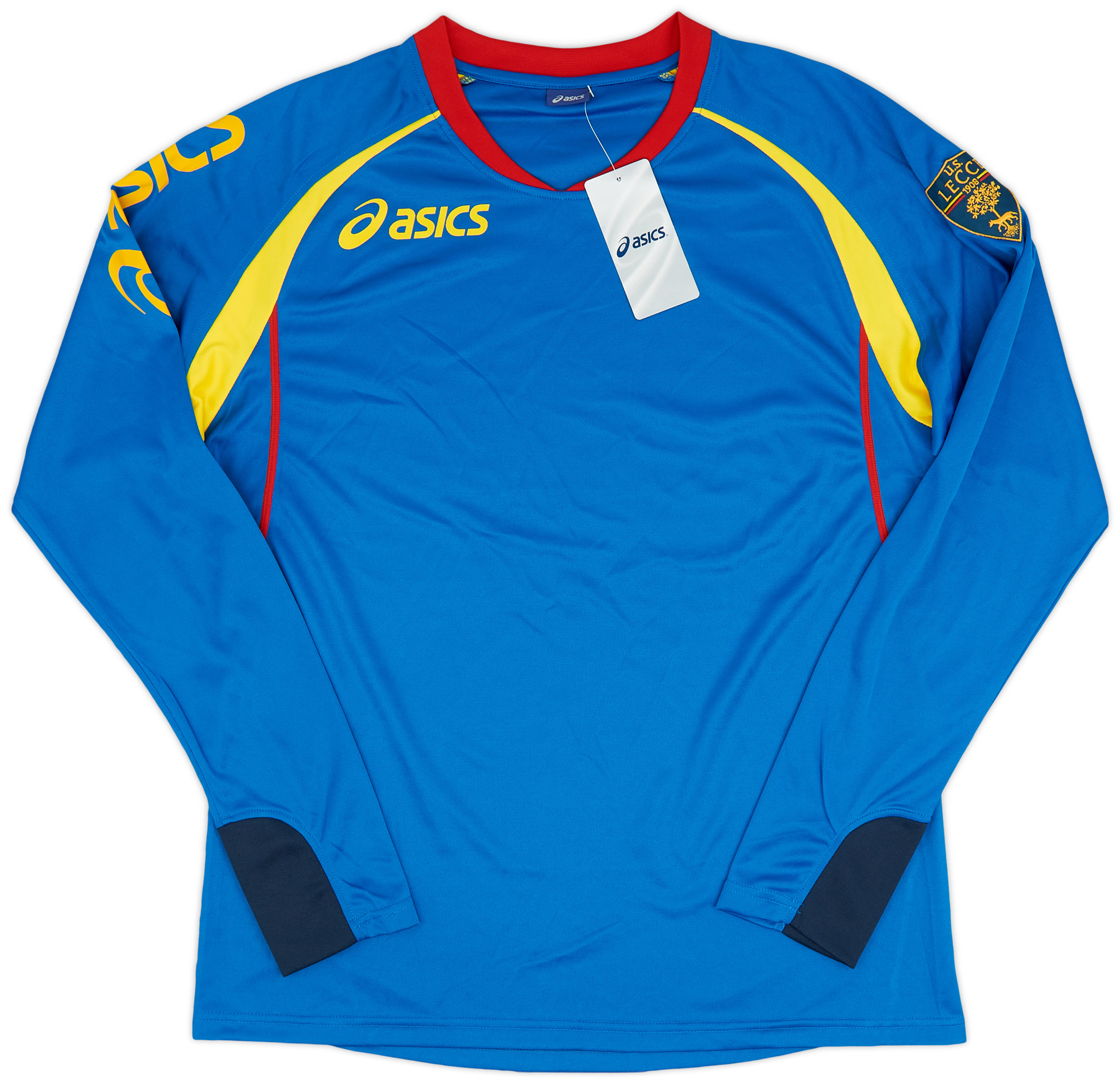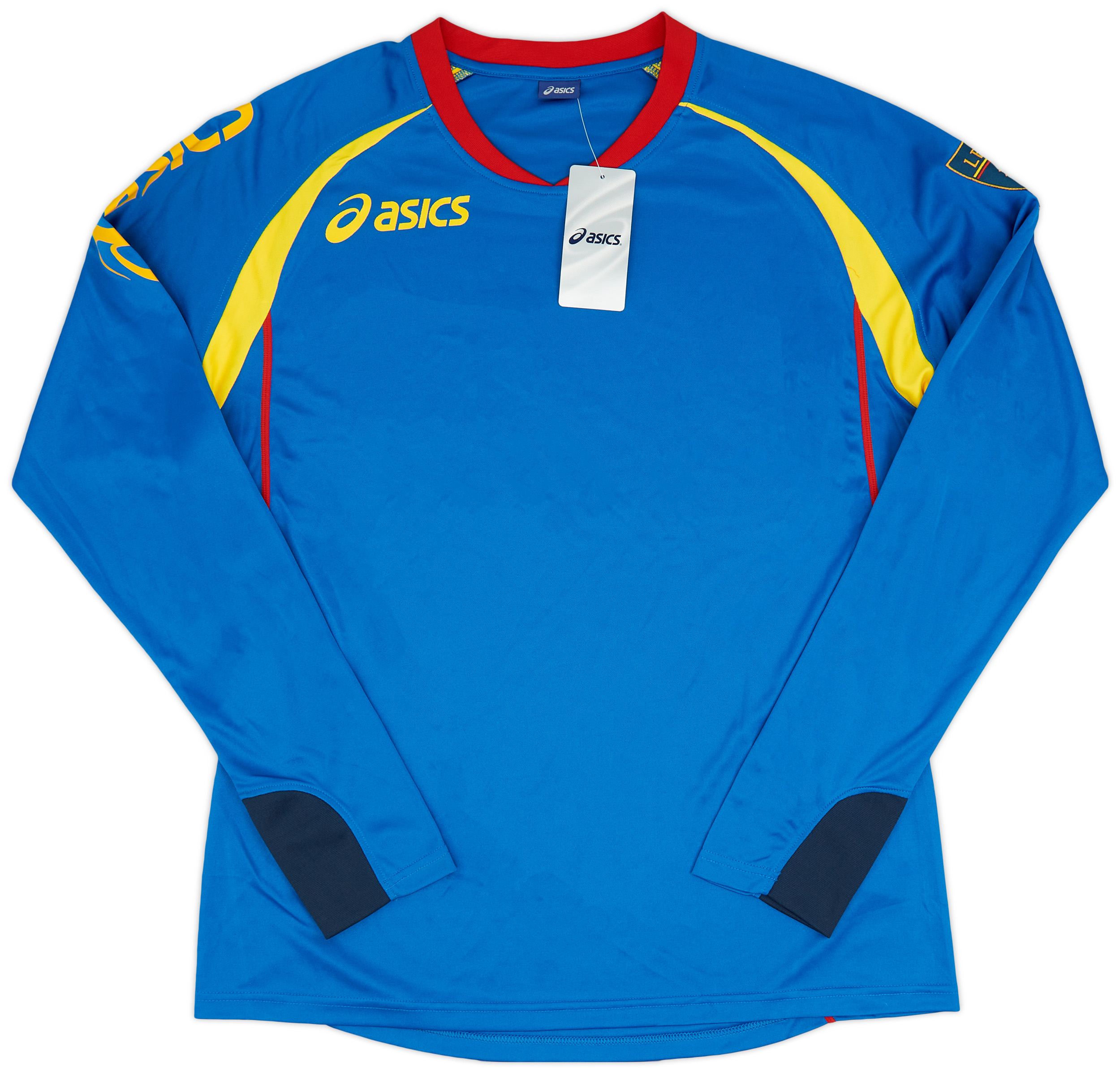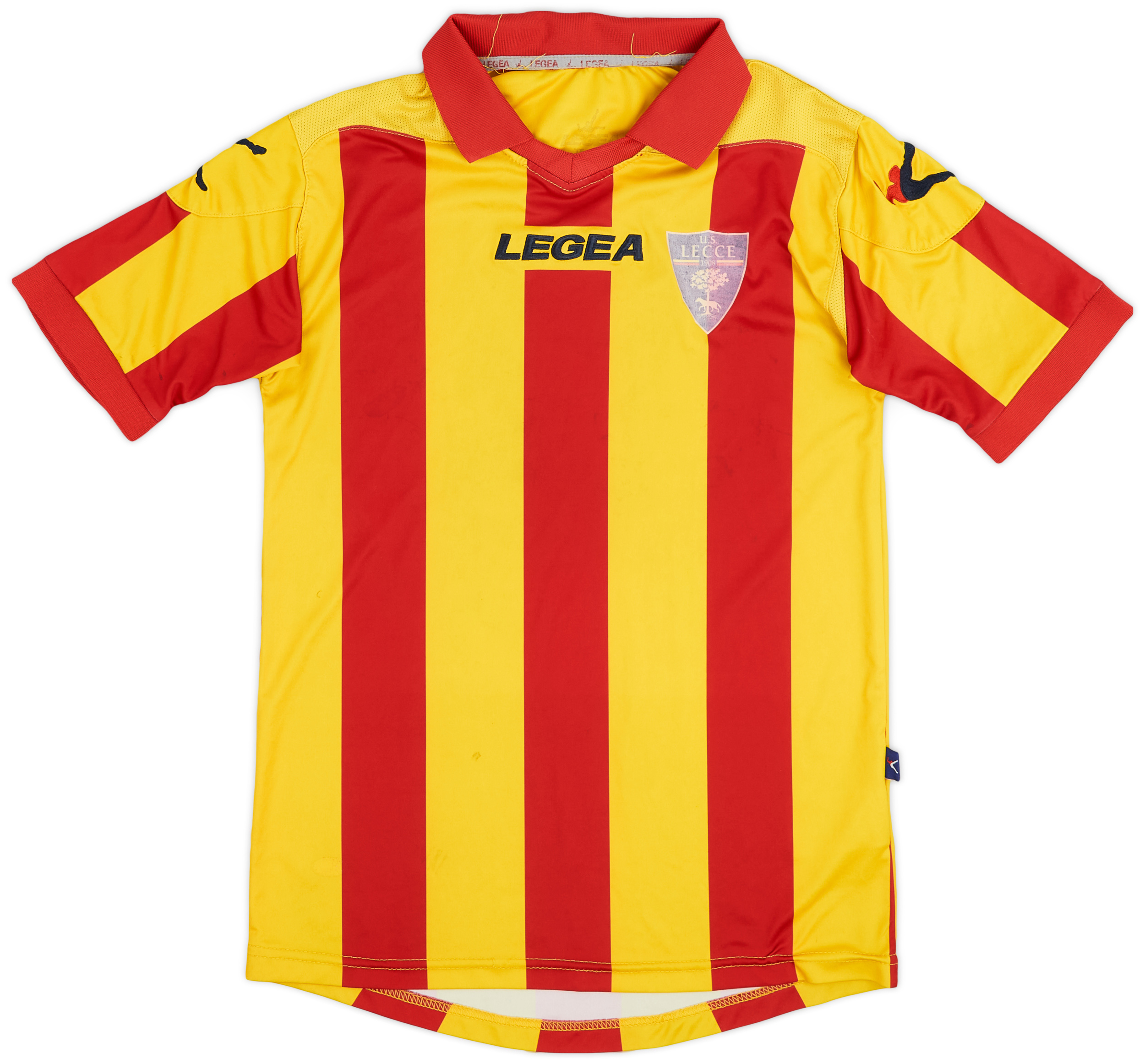Lecce
Introduction U.S. Lecce, commonly referred to simply as Lecce, is a professional football club based in the picturesque city of Lecce, in the Apulia region of southern Italy. Founded in 1908, Lecce has developed a vibrant identity deeply intertwined with its local culture and passionate fanbase. The team’s colors, yellow and red, symbolize its fiery […]
1999-00 Lecce Away L/S Shirt - 9/10 - (XL)
148.99£ - ca: €176
2004-05 Lecce GK Shirt - 9/10 - (XL)
106.99£ - ca: €126
2002-03 Lecce Away L/S Shirt - 9/10 - (XL)
94.99£ - ca: €112
2009-10 Lecce Match Issue Home L/S Shirt Defemdi #34
94.99£ - ca: €112
2003-04 Lecce Asics Player Issue Training L/S Shirt #7 - 8/10 - (XL)
82.99£ - ca: €98
2003-04 Lecce Home Shirt - 9/10 - (XL)
82.99£ - ca: €98
2011-12 Lecce Home L/S Shirt - 6/10 - (S)
58.99£ - ca: €70
2006-07 Lecce Asics L/S Polo Shirt - 9/10 - (L)
58.99£ - ca: €70
2011-12 Lecce Third Shirt - 8/10 - (L)
58.99£ - ca: €70
2007-08 Lecce Asics Training L/S Shirt - 8/10 - (XL)
53.99£ - ca: €64
2020-21 Lecce M908 Training Shirt - 6/10 - (XXL)
35.99£ - ca: €42
2012-13 Lecce Asics Training L/S Shirt (XL)
35.99£ - ca: €42
2012-13 Lecce Asics Training L/S Shirt (XXL)
35.99£ - ca: €42
2012-13 Lecce Asics Polo Shirt - 8/10 - (L)
29.99£ - ca: €35
2013-14 Lecce Home Shirt - 5/10 - (S)
29.99£ - ca: €35
2020-21 Lecce M908 Training Vest - 8/10 - (XXL)
17.99£ - ca: €21
Introduction
U.S. Lecce, commonly referred to simply as Lecce, is a professional football club based in the picturesque city of Lecce, in the Apulia region of southern Italy. Founded in 1908, Lecce has developed a vibrant identity deeply intertwined with its local culture and passionate fanbase. The team’s colors, yellow and red, symbolize its fiery spirit and commitment to the game. Over the decades, Lecce has seen its share of highs and lows, sparking dedication and loyalty among its supporters. The club’s journey through Italian football is rich and layered, showcasing resilience and flair.
Club History
The history of U.S. Lecce dates back to 1908 when a group of students formed the club, marking the beginning of its long-standing journey in football. Initially known as “Lecce Foot-Ball Club,” the rebranding to Unione Sportiva Lecce came in 1927, aligning with the club’s aspirations to achieve greatness within Italian soccer. The club played its early years in regional leagues before making a significant breakthrough in 1928 when it joined the Second Division of Italian football.
Lecce experienced fluctuating fortunes during the mid-20th century, with varying levels of success in both Serie A and Serie B. A defining moment came in the late 1980s and early 1990s, as Lecce began to solidify its place in Italy’s top flight. Under the management of renowned coach Marco Tardelli, Lecce achieved promotion to Serie A in the 1984-85 season, marking a fresh era for the club, albeit with challenges ahead.
Achievements
U.S. Lecce has an impressive record of achievements, showcasing its competitive drive in various leagues. The club’s maiden Serie A season in 1985 was notable, even though it was demoted a year later. Lecce’s resilience was evident as they returned to Serie A on multiple occasions, cementing their reputation as a yo-yo club—one that frequently bounces between the top two tiers of Italian football.
One of the most remarkable achievements came in the 1988-89 season when Lecce finished 11th in Serie A, marking its best performance up to that date. In 2012, the club experienced another highlight by reaching the Coppa Italia semi-finals, showcasing their ability in knockout competitions. The club’s most recent promotion to Serie A occurred in 2021, where they showcased their determination to return to Italy’s elite football after a brief absence.
Significant Players and Matches
A number of significant players have donned the Lecce shirt, contributing to the club’s history and success. Legendary figures like Franco Causio, who played in the 1970s and ’80s, notably strengthened Lecce during his tenure, while players like Pippo Maniero brought flair and creativity to the field. In recent years, players such as Marco Mancosu and Gabriel have made their mark, showcasing talent that has energized both the team and its fans.
Among notable matches, Lecce’s stunning 4-0 victory against rival team Fiorentina in 1998 stands out, as it demonstrated the club’s capabilities on big stages. Additionally, the club’s fierce matches against regional rivals, including Bari and Catania, have fostered an intense competitive atmosphere, making these clashes highly anticipated by fans.
Cultural Impact
U.S. Lecce is more than just a football club; it is a cornerstone of local identity and culture. The club has a robust and passionate fanbase known for its unwavering support, often filling the Stadio Via del Mare during matchdays. This stadium, with a capacity of around 33,000, becomes a cauldron of passion, echoing the chants and cheers of devoted fans who have cultivated a rich football culture in the region.
The influence of Lecce extends beyond the pitch, impacting local culture, social gatherings, and communal pride. The club frequently engages with local youth through developmental programs, fostering a new generation of players and fans. These initiatives not only enhance talent but also strengthen community ties, making football a unifying force in Lecce and its surroundings.
Conclusion
U.S. Lecce holds a unique place in Italian football history, representing resilience, passion, and local pride. With a story marked by promotion battles, legendary players, and significant achievements, Lecce has shown that it is a club capable of overcoming challenges while keeping its rich heritage alive. As the football landscape continues to evolve, Lecce remains a symbol of hope and determination for its dedicated fans, eager to support their beloved team through the highs and lows of the beautiful game.


